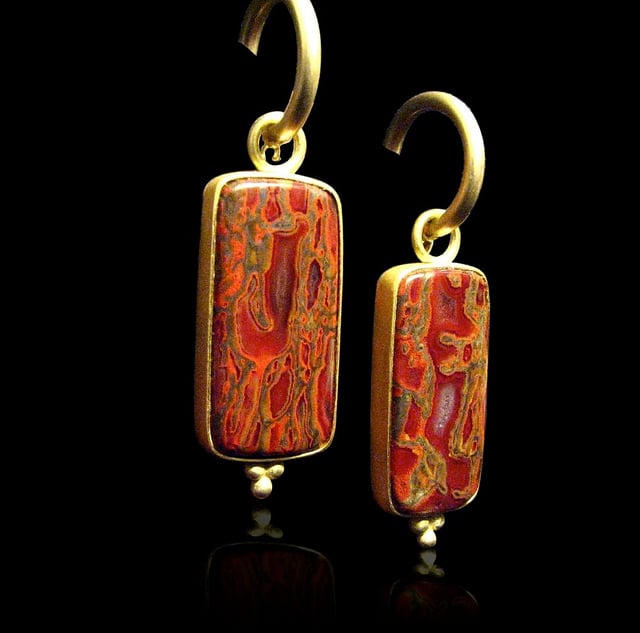Professional Gemologist Certification Course
Jewelry Nomenclature: Gem Earrings
Purchase Professional Gemologist Certification Course
The International Gem Society (IGS) was one of the first online schools of gemology to serve a global audience. Our goal is to provide a flexible and affordable education in gemology. IGS's founder, Donald Clark, CSM IMG, created a robust testing process to ensure that those with IGS certification would stand out in the crowd. IGS continues to use the testing process created by Donald Clark to ensure continuity and rigor.Types of Earrings
You can affix earrings to an ear in two ways: piercing or pressure. Post earrings are an example of piercing. Clip-ons and ear bands are examples of pressure.
Post Earrings
Post earrings consist of a thin metal rod with a decoration on one end. The metal rod, or post, goes through the pierced ear. A back is affixed to the end of the post sticking out behind the ear to keep the earring from falling out. The decorative ends of post earrings can feature gems such as pearls or other types of ornaments. Post-type gem earrings typically employ prong clasps to secure stones and groove pins to fix pearls. (The pearls are glued in place, and the cupped backs help keep them there).
Wire Earrings
Jewelers design wire earrings to dangle from pierced ears. The curved metal wire part goes though the pierced ear and prevents slipping.
The kidney wire is a popular finding for this earring style. It holds the earring in place by threading the wire through the piercing then attaching it to a hook. French wires or shepherd's hooks are also popular because their hooked shapes keep the earrings in place.
Clip-On Earrings
People without pierced ears can wear clip-on or screw-on earrings. They are nearly as versatile as pierced earrings. The front can be plain or decorated. Many have loops for dangle accents. Clip-on gem earrings can feature stones in many types of designs.
Clip-ons feature hinged backs that hold the earring to the ear. These earrings can be post-style (without the post) or dangly-style. Since the clip-on backs require extra metal, clip-ons are usually heavier than pierced earrings of a similar style.
Ear Bands
Ear bands are designed to wrap around the upper shell of the ear. Jewelers make them out of metal and can adorn them with gems and designs or leave them plain.
Earring Backs
Clutches or nuts hold post earrings in place. Whereas clutches work by friction, nuts screw on. Most ear backs are the same metal as the earring, but some include a soft plastic pad to hold against the ear.
Ear Jackets
Ear or earring jackets fit behind stud earrings and can add more variety to your jewelry with minimal expense. Coupling an ear jacket with a post earring creates a new look without the need to purchase a new set of earrings. They can be decorative pieces of metal, stone, or a material set with more gems. These design pieces may be sold separately or in sets with one or more post earrings.
International Gem Society
Never Stop Learning
When you join the IGS community, you get trusted diamond & gemstone information when you need it.
Get Gemology Insights
Get started with the International Gem Society’s free guide to gemstone identification. Join our weekly newsletter & get a free copy of the Gem ID Checklist!
